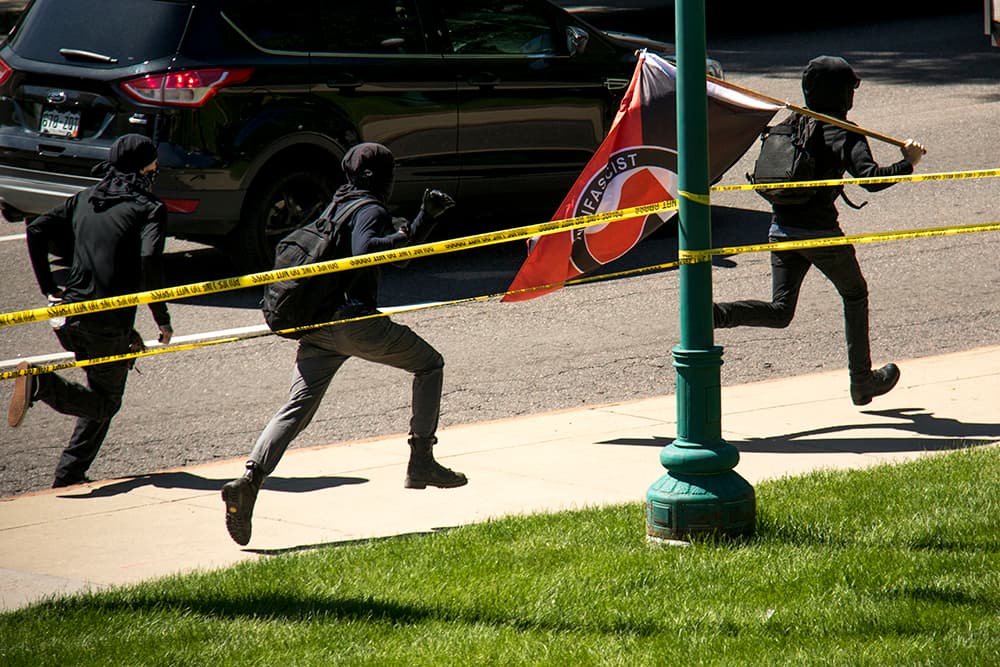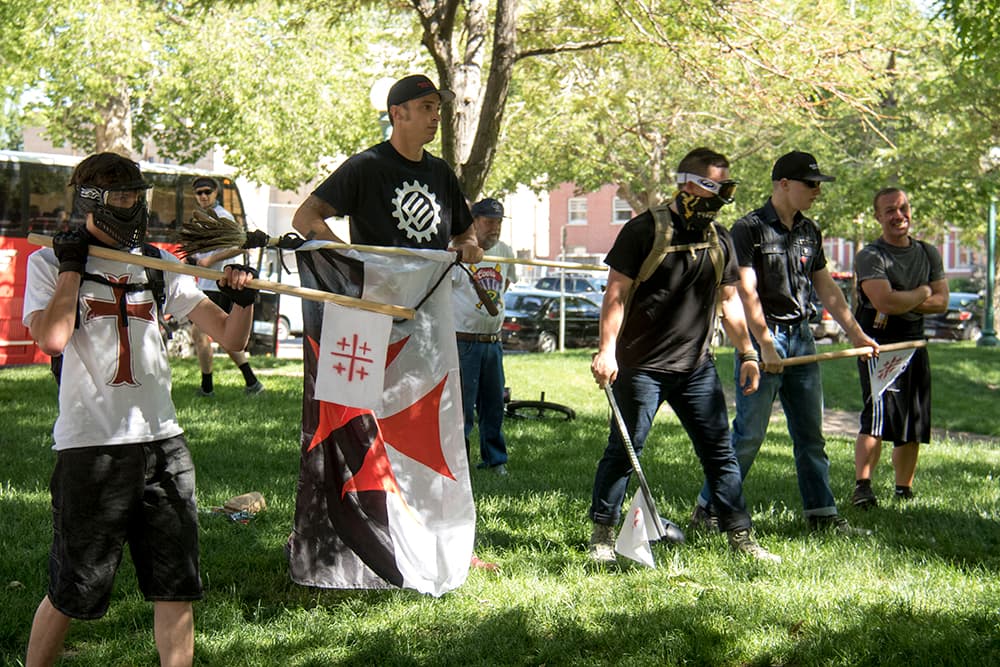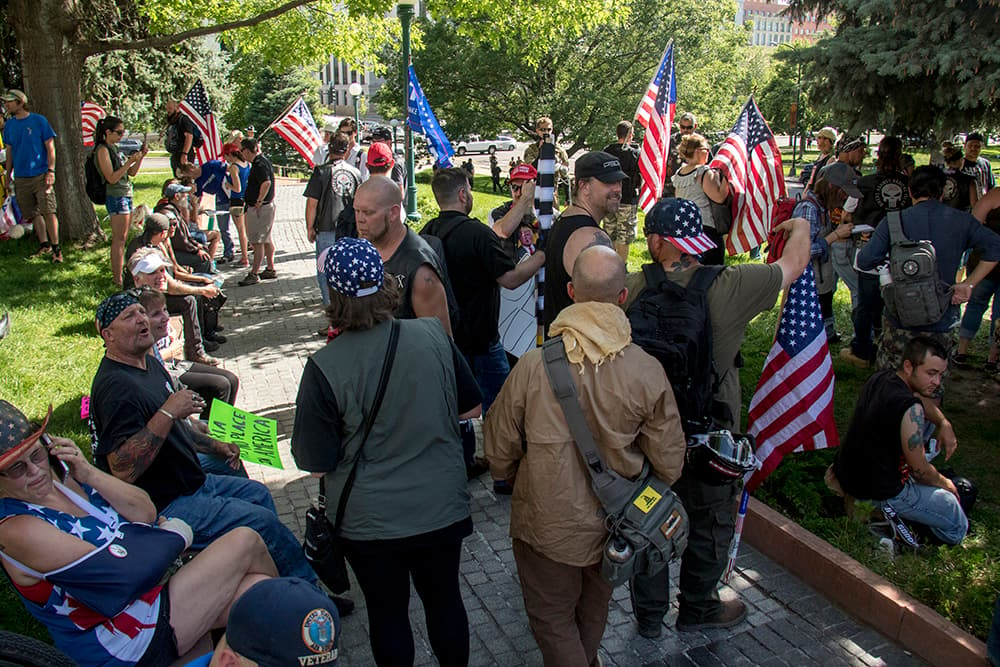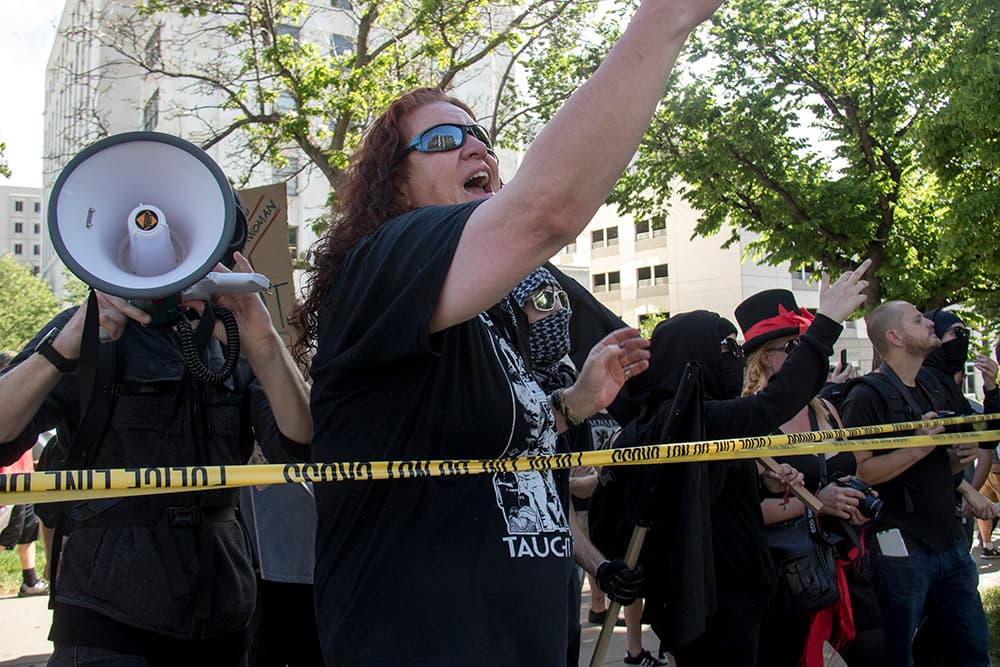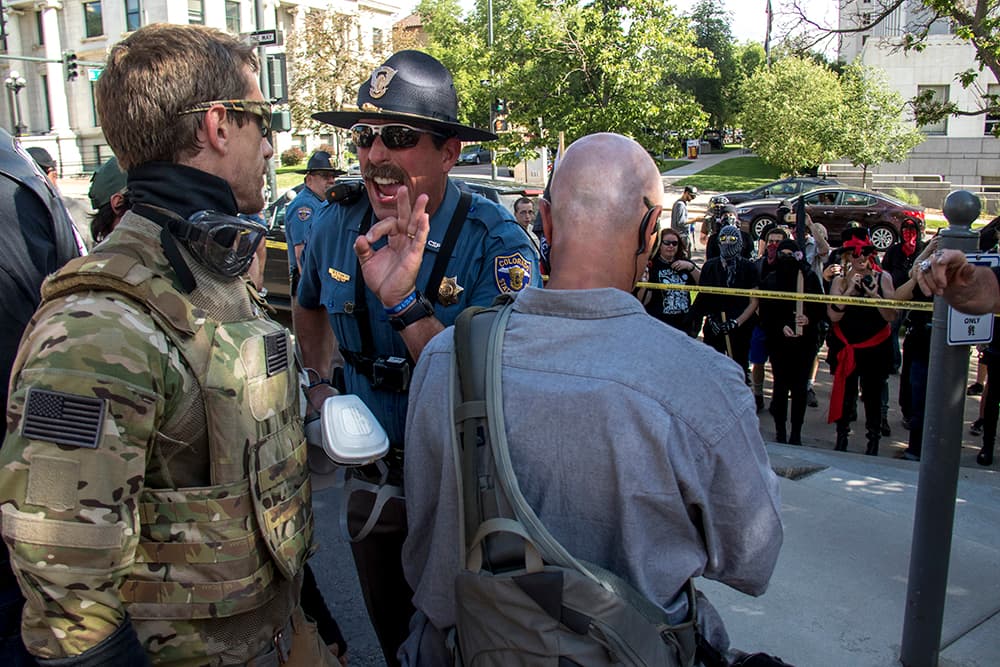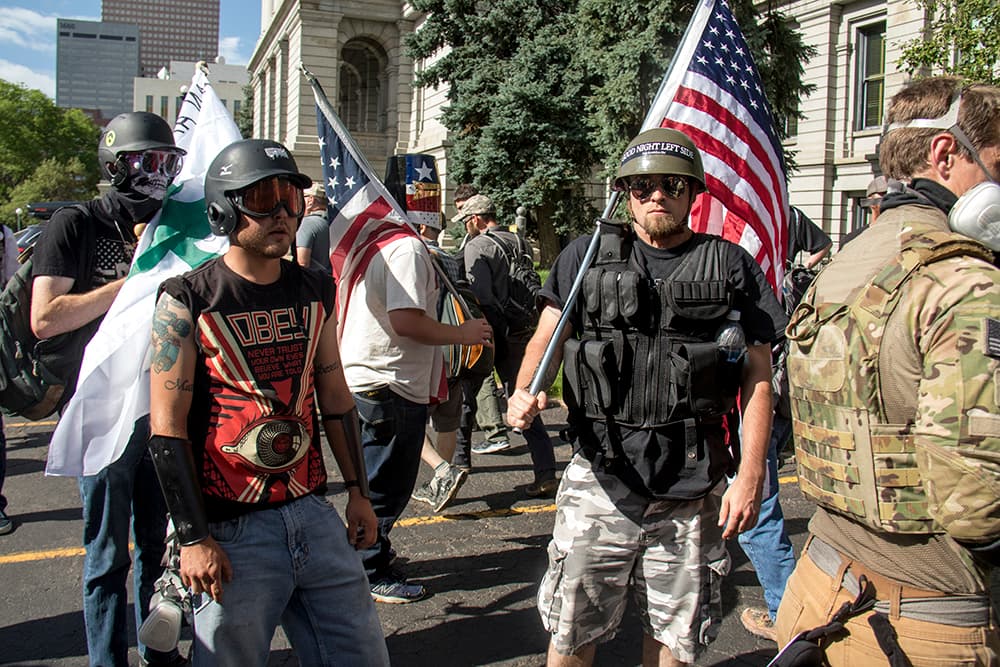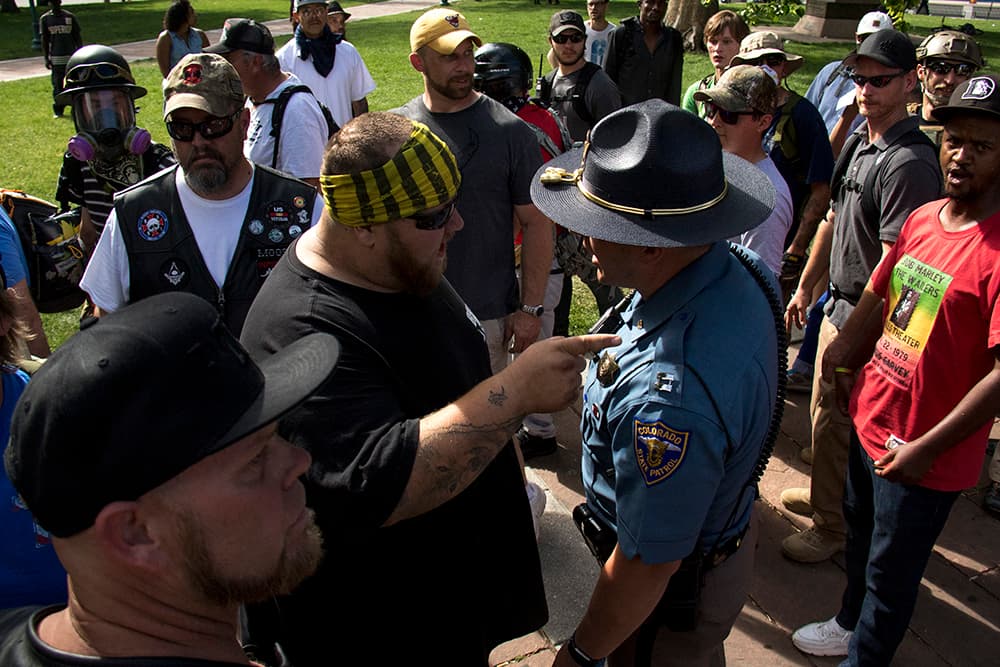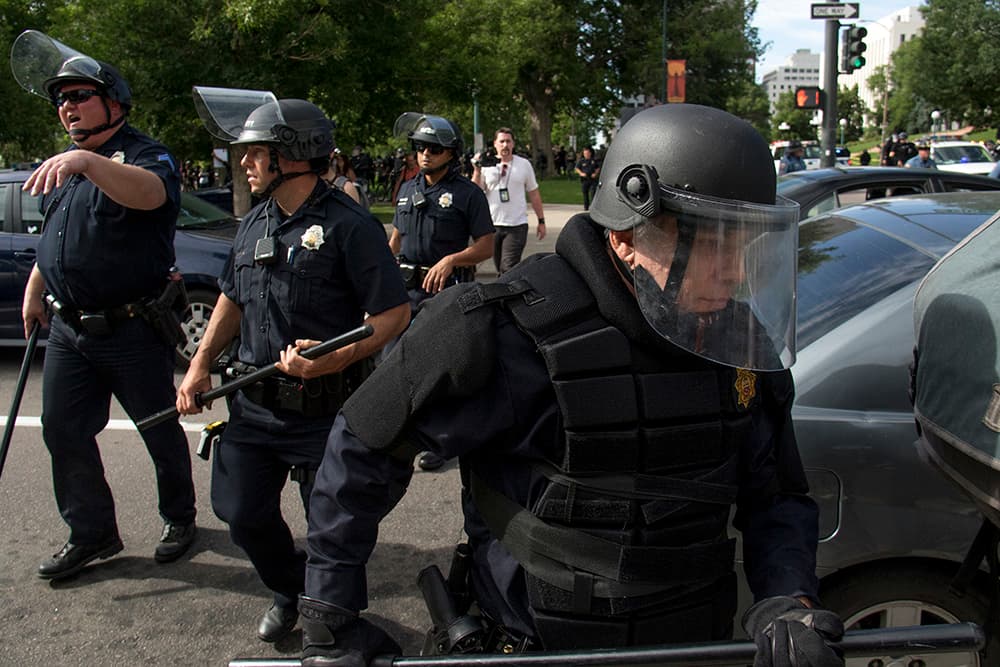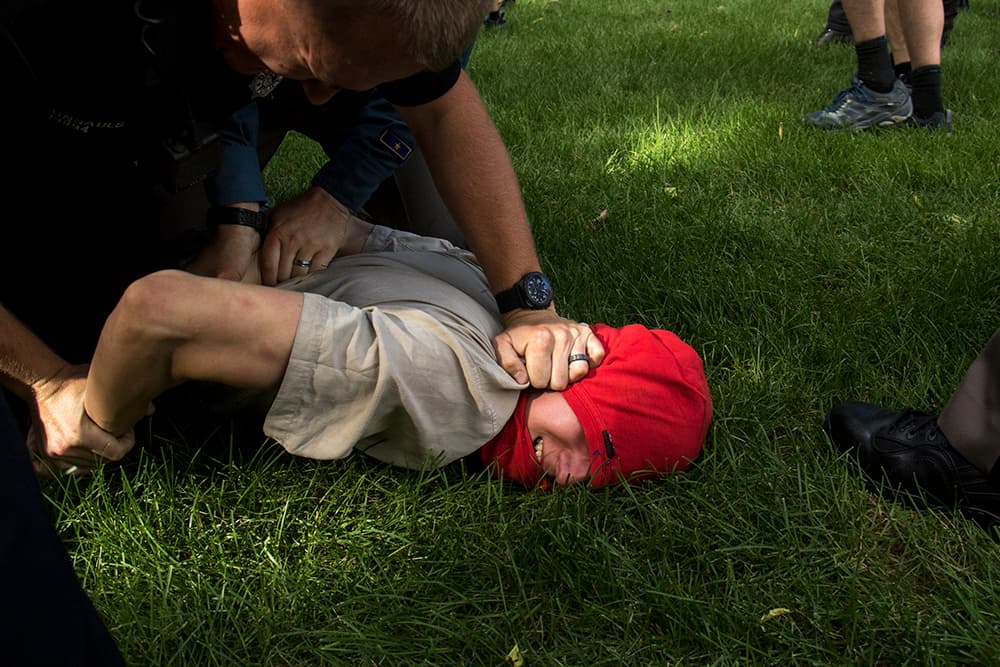
On Saturday afternoon, the area above the Capitol steps was filled with bikers, militia members and people wearing Donald Trump T-shirts for what organizers described as a rally against Sharia law. Below them, a large group of counter-protesters, many with faces covered in black, lined Lincoln street.
The rally was one of several nationwide organized online, attracting extremists -- and counter-protesters.
The Associated Press described the Denver rally as about 175 protesters, who held their rally on the Capitol grounds, singing the national anthem and waving signs. Around 200 counter-protesters gathered across the street with signs expressing support for Muslims. About 100 police officers were in between.
The groups spent the better part of two hours mostly yelling up and down the hill at each other through bullhorns.
At 5 p.m., the event permit expired. The group atop the steps had to exit together, escorted by police. Tensions rose as they crossed Liberty Park, between Lincoln St. and Broadway, and passed the opposing group of anarchists and angry "anti-fascists." Police in protective gear appeared as state troopers ran to separate the groups. Officials shut down Liberty Park until the rally group disappeared.
Denver Police reported that four people were arrested in the chaos "for disturbance, assault, threats, and an active warrant."
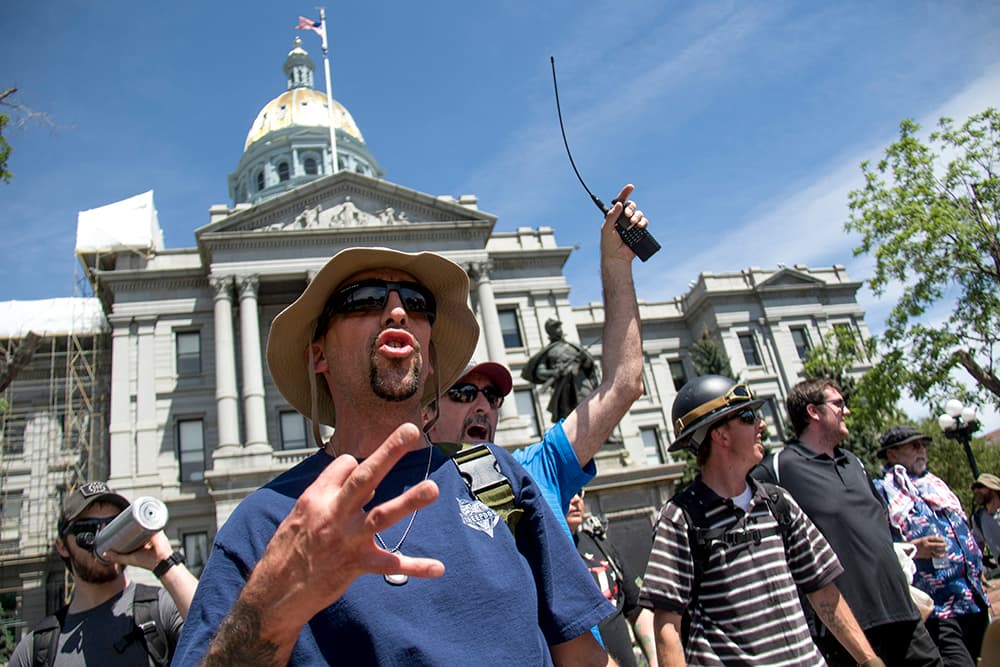
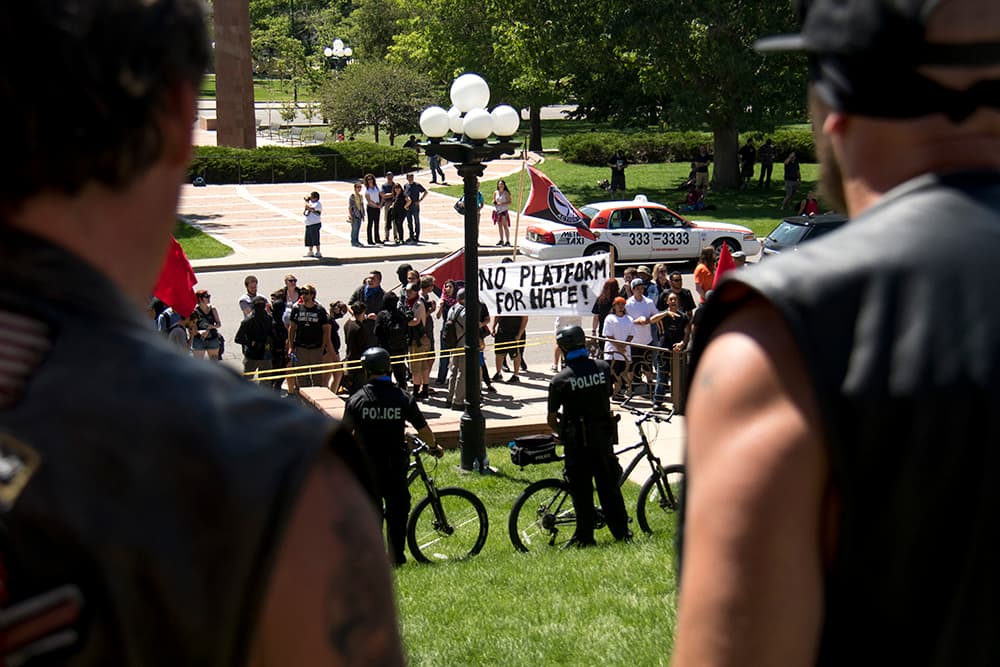
Bikers Against Radical Islam face their opponents down the hill. (Kevin J. Beaty/Denverite)
While some young men wearing white power symbols were ejected from the event by police, the protest was, overall, a mixed group. Many people wore leather vests reading "Bikers Against Radical Islam." Others' clothes read "III," identifying themselves as part of the "three percenter" militia movement.
One of the three percenters, who asked not to be named, said her militia group aims to protect the Constitution, and emphasized that it was solely "radical" Islam that she came to speak out about.
The rally was observed by a U.S. Justice Department Community Relations Service, a "peacemaker" group that works on issues pertaining to "community conflicts and tensions arising from differences of race, color, national origin, gender, gender identity, sexual orientation, religion, and disability."
